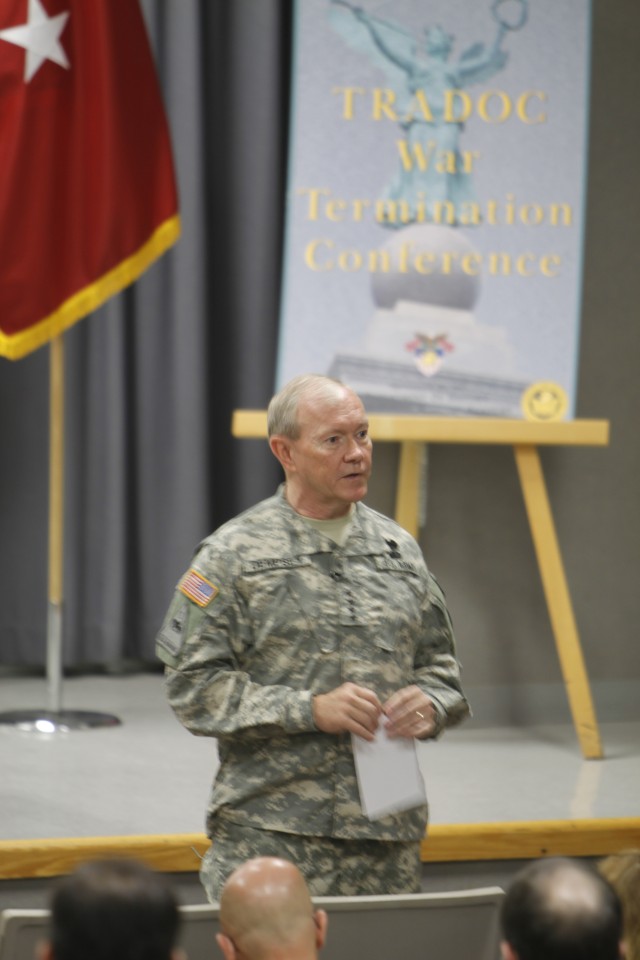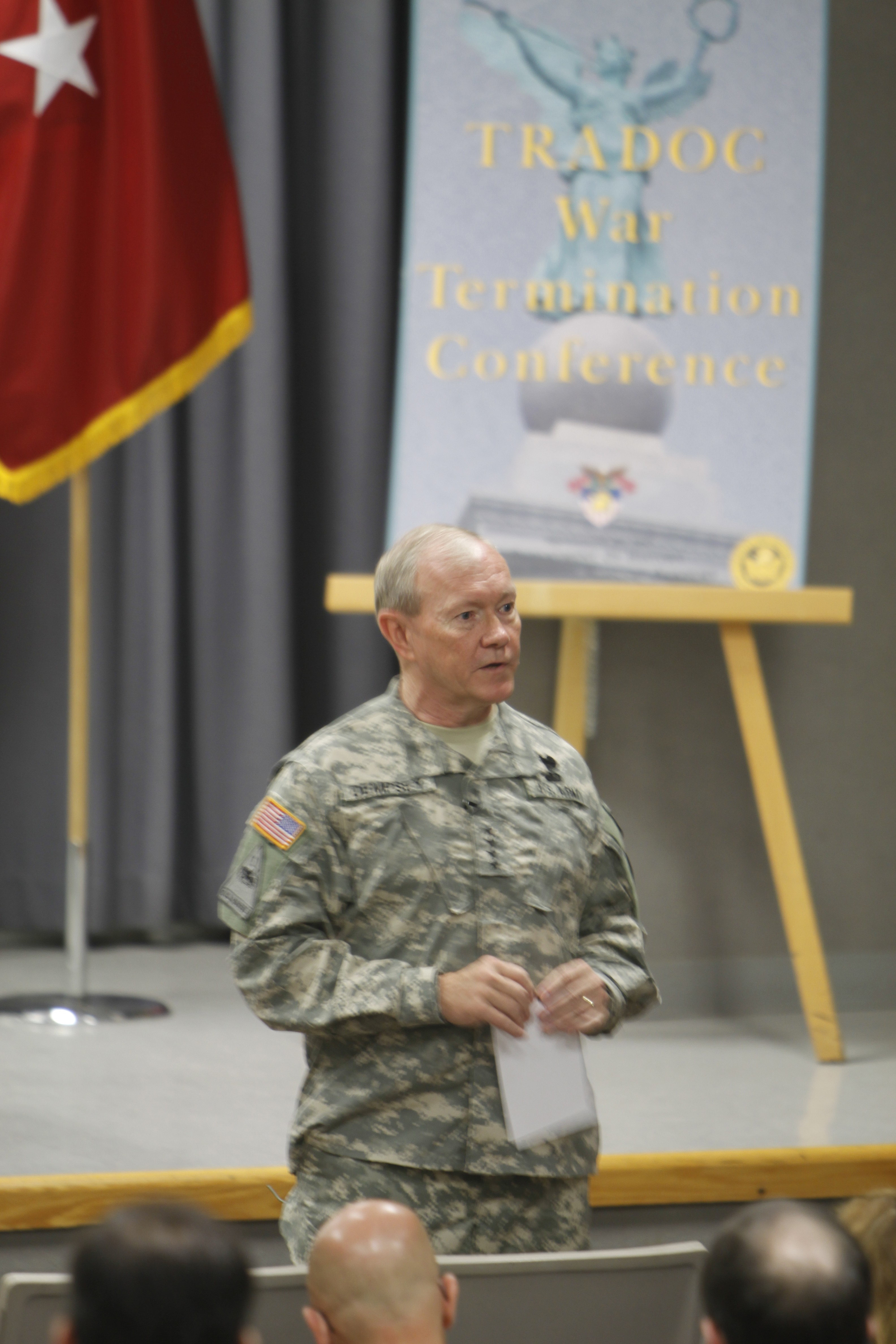
WEST POINT, N.Y. (July 1, 2010) -- The U.S. Military Academy hosted the Training and Doctrine Command War Termination Conference June 21, bringing a consortium of military history professors, scholars and authors together to discuss a topic largely understated in American warfare.
Gen. Martin Dempsey, TRADOC's commanding general, recalled looking up at his bookcase one day and seeing a copy of "America's First Battles."
"I remembered as a senior company grade officer at the time and that (book) had a catalytic effect on me in becoming interested in readiness," Dempsey said. "Now that's kind of a tactical issue, but I began to wonder what book or project or think-piece for an essay could have that kind of catalytic effect on our intellect. What could get us to think and argue about what we're about in the 21st century, in particular, after nine years of war'"
Dempsey noted that volumes have been written on how the U.S. enters the battle, and the principles that score the beginnings of a conflict.
"But we don't have much in the way of deep thinking about what happens when we get into a fight and how we extricate ourselves from it," Dempsey said.
The task fell on Col. Matthew Moten, deputy head of the History Department at West Point, to lead the project to fruition. This meant gathering the nation's top military historians who would write essays on war termination spanning the Revolutionary War to the Gulf War. These essays, and its authors, then presented their findings at the conference with Moten and Col. Gian Gentile, USMA History Department professor, moderating the panels.
"The intent of this project was to study something that has yet to be rigorously studied, and that is how America ends its wars," Moten said. "Surprisingly, very few people have really talked about how wars end, so this was blindingly a flash of the obvious that this was something that needed to get done."
Assembling panels of more than a dozen top historians may seem a difficult task.
"I had a technique for doing that," Moten said. "Gerhard Weinberg is without question the preeminent World War II historian. Brian Linn is without question the preeminent Philippines War historian ... not in the United States, not in this generation, but period. So, I went after the 'big marquee' names first ... and everyone followed. We have a very collegial group who enjoy each other's company and they're the tops in their field."
The idea of fulfilling war aims was a common thread that ran through the first panel of speakers. Ira Gruber, Rice University history professor, noted that the Campaign of 1780, where Americans fought for independence, was a war where the U.S achieved all its war aims-removal of a powerful foreign government and standing army, and no unlawful taxation.
However, Gruber added, it took a year to realize those war aims really weren't what the country needed, and a decade before it was resolved with the adoption of the Constitution.
TRADOC and USMA will use the proceedings of this conference-essays, videos and interviews-for instructional purposes, according to Moten.
Dempsey thanked the organizers and panel members for their efforts in a project which he described as "raises the bar on our intellectual energies."
"I appreciate the depth of thought seen and the pace it was provided," Dempsey said. "We are trying to fundamentally alter our leader development model, and this is a step. This is a step where we encourage ourselves as a profession to understand our history and what we can learn from it."

Social Sharing